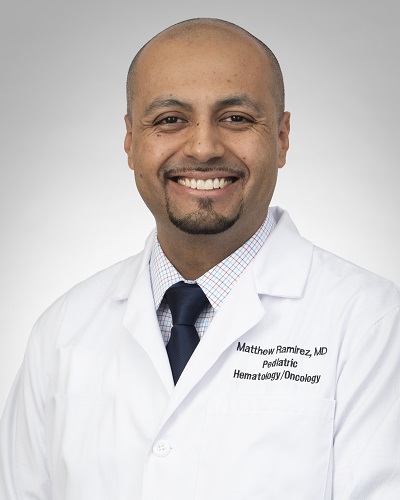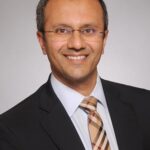Matthew D. Ramirez, M.D.
By Daniel Casciato
Pediatric cancer is a devastating illness that affects not only the patients but their families. Surviving cancer is a significant accomplishment, but the journey doesn’t end there.
Children who have beaten cancer face unique challenges, including long-term health effects, emotional trauma, and adjusting to life after treatment. That’s where the KIDZ Medical Cancer Survivor Clinic comes in. This specialized clinic offers comprehensive care to pediatric cancer survivors, addressing their unique needs and helping them to live healthy, fulfilling lives.
The Pediatric Cancer Survivor Clinic is a vital resource for childhood cancer survivors who require long-term care and support. The clinic provides a range of services and resources to help survivors manage the long-term side effects of their treatment and improve their quality of life, according to Matthew D. Ramirez, M.D., a pediatric oncologist at KIDZ Medical and a childhood cancer survivor himself. Dr. Ramirez is the clinic’s medical director. The clinic is held in the KIDZ Medical office on the campus of Palm Beach Children’s Hospital.
Dr. Ramirez had non-Hodgkin’s lymphoma at 13 and was treated by a physician who inspired him to become a pediatric oncologist. The lack of information about the long-term side effects of cancer treatment during his survivorship motivated him to establish the survivor clinic.
“I found there wasn’t much information or knowledge back then,” says Dr. Ramirez. “Basically, they knew some of the medicines could affect my heart. They said, ‘Oh, just get an echocardiogram once a year and have a great life.’ That was it. I found it very lacking.”
The clinic offers services to support survivors and their families, including monitoring for growth and developmental issues, side effects of oncology treatment, psychosocial evaluations for depression and anxiety, nutritional counseling, and genetic counseling. Board-certified specialists in oncology, endocrinology and cardiology are part of the clinic team. Dr. Ramirez emphasized the importance of having different disciplines working collaboratively to provide the best care for childhood cancer survivors.
“We sit down and look over the patients together,” Dr. Ramirez explains. “We evaluate the potential risks for our patients based on their initial cancer treatments and current health, and then determine what services we need to pull in. That could be some counseling or an endocrinologist focused on diet and exercise. It could be cardiac-related or we may need to refer them to another specialist. Whatever it is, we bring those specialists in to provide comprehensive care.”
Dr. Albert Tano, neonatologist and co-founder of KIDZ Medical, commented that, “Medicine has evolved and pediatric cancer is survivable although treatment can result in secondary effects which appear years later. The potential list of secondary effects is vast, including other cancers, cardiac issues, osteoporosis and infertility.
Recently, new malignancies were identified and treated amongst the patients of the KIDZ Medical Cancer Survivor Clinic, lending credence to the importance of a multi-disciplinary team of specialists.
“The three malignancies in our patients weren’t picked up by other doctors,” Tano adds. “In the end, we improve the quality of life of the post-cancer patient and ensure that any health challenges are identified and treated.”
Additionally, Dr. Tano highlighted the importance of following the Baylor protocol for treating cancer survivors, which is the gold standard in the U.S.
Meanwhile, the biggest challenge facing childhood cancer survivors today is the knowledge gap. Dr. Ramirez believes in involving patients and families in decision-making and ensuring their voices are heard and respected. He mentions that an online file-based portal provides families with access to their treatment summaries, patient information material, and more. In addition, the portal allows families to print and share their treatment summaries with other providers.
Dr. Ramirez emphasized the need to close this gap and raise awareness about survivor clinics. He also mentioned the growing population of cancer survivors and the need for advocacy and legislation to support them.
“The survivor world is very much based on information sharing,” he says. “We need to empower our families and patients to have that information at their fingertips.”
In the past few years more focus has been placed on pediatric survivorship. “There’s legislation such as the Childhood Cancer STAR Act,” he says, “which emphasizes pediatric cancer survivor research and in particular funds research into late effects of cancer therapies.”
In summary, Dr. Ramirez stresses the importance of childhood cancer survivors being seen in a survivor clinic for the rest of their lives. He takes great joy in seeing his patients graduate high school, go to prom, and live their lives without the burden of cancer or its side effects.
For more information, visit www.kidzmedical.com.


























